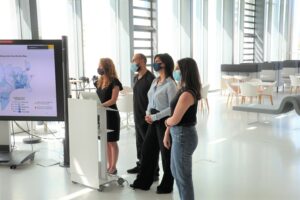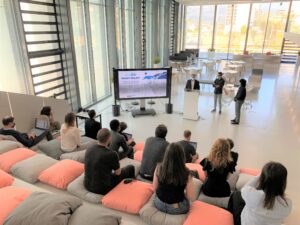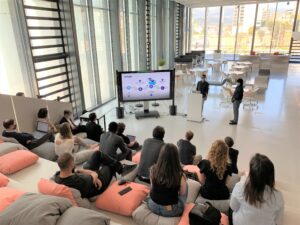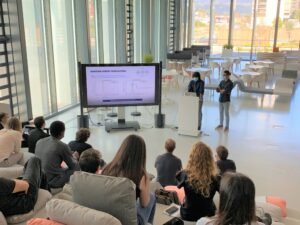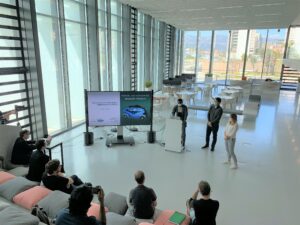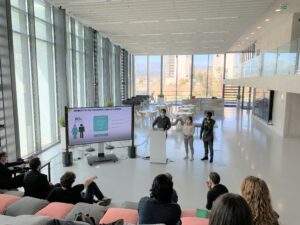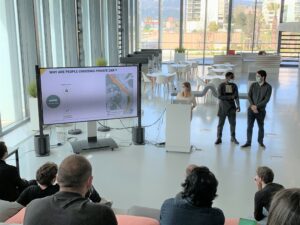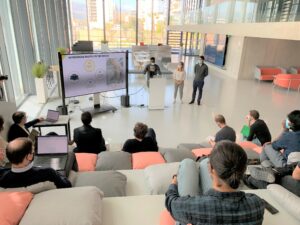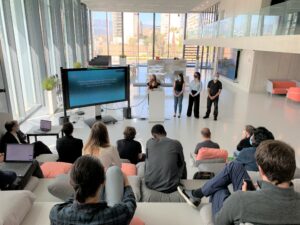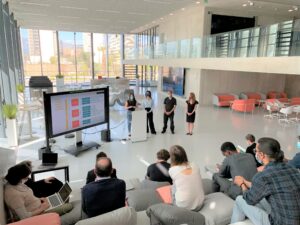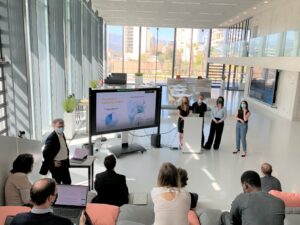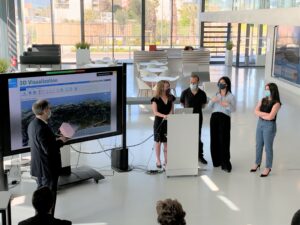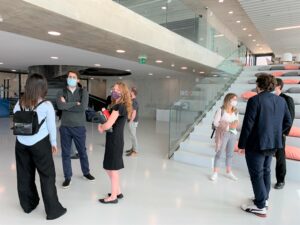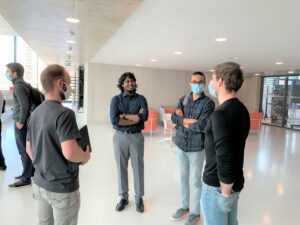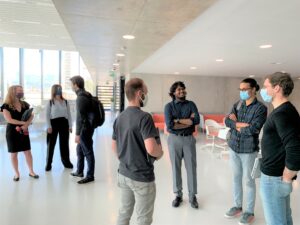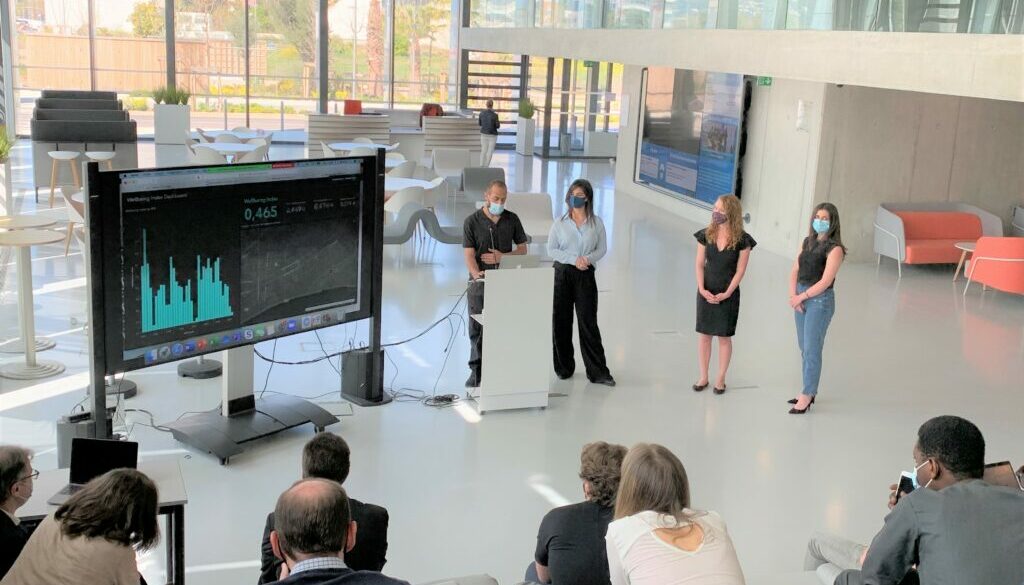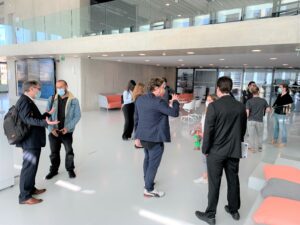Presentation of the Smart City Hands-on Projects
As part of the MSc Engineers for Smart Cities, students participate in real-case smart city projects that enhance the practical application of knowledge gained throughout the 1st semester. Participation in the projects is designed to develop students’ project management, teamwork and presentation skills.
This year, our students participated in projects deployed in the city of Nice and its surroundings in the field of energy, mobility and environment.
Energy in Smart City
The participants of the Energy project developed their thinking on the topic Machine Learning approach to predict arrival time of Electric Vehicles (EVs).
The challenge of reducing carbon emissions is directly related to reducing transportation needs. This goal will only be achieved if companies switch from fossil fuel cars to electric vehicles, and if electricity generation is from renewable sources.
In this project, the students propose an approach based on leveraging historical data to obtain an end-to-end learning model that will be able to predict user arrivals in real time and make the charging station ready for the incomings.
As part of the project, students conducted a variety of experiments and simulations based on electric vehicle charging records of IMREDD
Wellbeing in the City
Members of the Environment project conducted analysis of the citizen wellbeing in Nice in the context of research on Environmental Data for 3D Smart City Platform.
The goal of this research was to explore the relationship between environmental conditions, citizen wellbeing and urban form, and propose a wellbeing index that is measured at the neighborhood (IRIS) level.
In order to experiment with changes to the environmental conditions and urban form and to measure the potential impact on citizen wellbeing, the students used the 3D modeling and simulation tool, Smart City Explorer, provided by SIRADEL.
Mobility in Smart City
The Mobility team conducted their research on Technical Solutions & Methodology to Integrate Autonomous Vehicles in the Carros-Le Broc industrial zone.
Their research revealed the requirements for the successful integration of an autonomous shuttle via the identification of key challenges: connectivity overview, mapping, infrastructure preparation, accessibility factors, regulatory framework, etc.
The project aimed to support the development and adoption of the autonomous shuttle MILLA POD as a new mode of transportation.
